China Gate (1957)
“What did you expect? A notarized guarantee that the baby would be born with eyes aimed your way?”
|
Synopsis: |
|
Genres, Themes, Actors, and Directors:
Review: Barry’s rejection of his own son based purely on his appearance is at least a refreshingly forthright depiction of white supremacy at its most insidious; but watching Dickinson try again and again to make things work with her estranged husband — simply for the opportunity to send her son to America, though we get the sense she still loves Barry for some reason — leaves us feeling decidedly icky. Adding some much-needed pathos to the storyline is Nat “King” Cole as a Black American mercenary named Goldie who is openly disgusted by Barry’s treatment of his son, and who is (thankfully) able to show this emotion without fear of racial reprisal. The bulk of the drama focuses on the group’s intrepid journey across a jungle of wilderness, using Dickinson as a decoy and featuring plenty of gritty violence along the way. Joseph Biroc’s atmospheric cinematography is top-notch throughout, effectively portraying the shadowy dangers this group undergoes: While this film isn’t must-see viewing, it will be of interest to Fuller fans, and is worth a one-time look. Notable Performances, Qualities, and Moments: Must See? Links: |
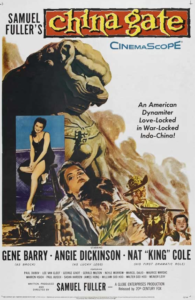
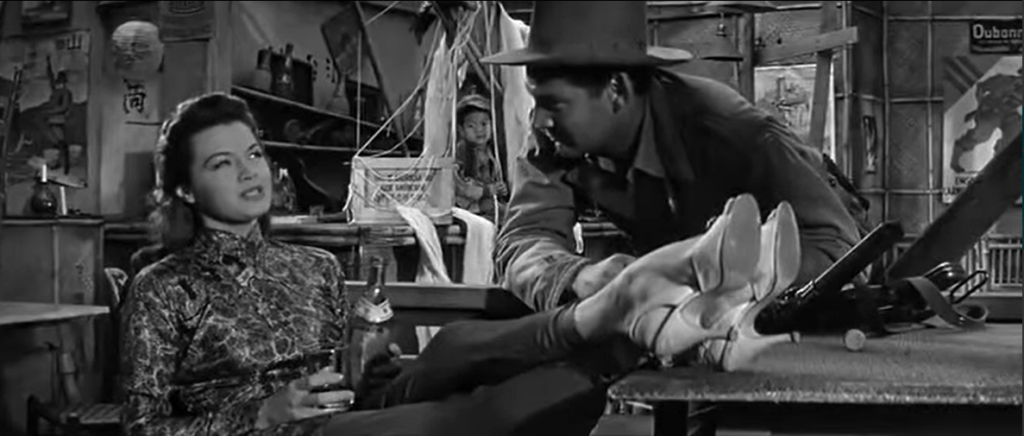
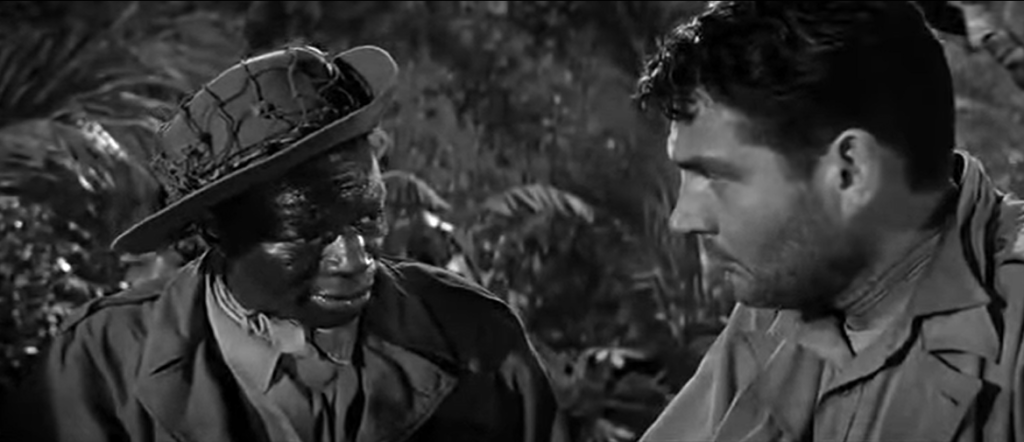
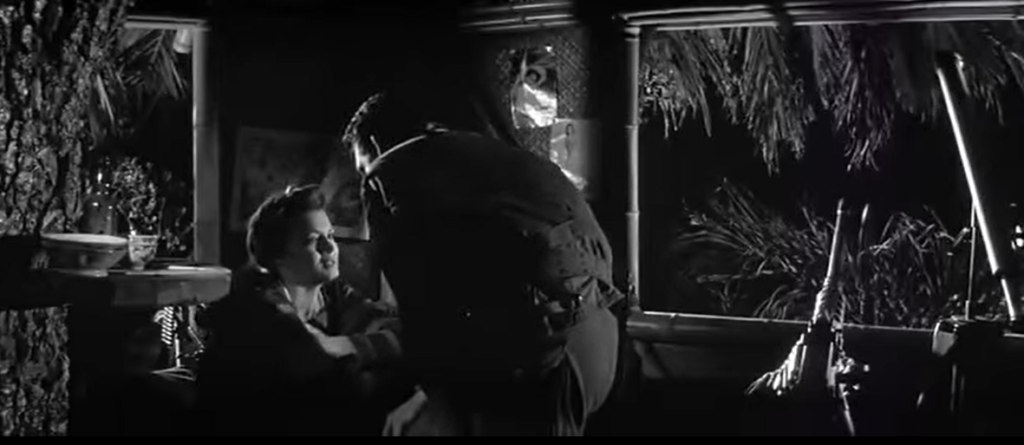
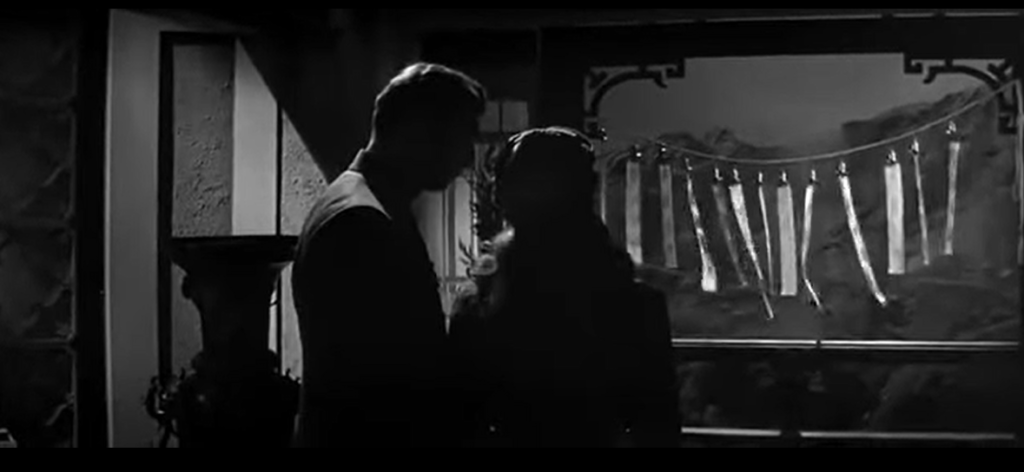
One thought on “China Gate (1957)”
(Rewatch). A once-must, as another strong Fuller flick, approaching war from another, yet equally intriguing, angle.
Lesser-known perhaps among Fuller’s films but no less powerful – with a solid structure, rich characterizations and a handful of genuine surprises. It also has a love story that doesn’t fall in line with being a sappy one; it’s challenged.
The three leads are fine but my favorite performance is Cole in his (very natural and relaxed) supporting role. (Here, Cole, of course sings the theme but it’s welcome; as opposed to Paul Anka’s more abrasive singing for Fuller’s ‘Verboten!’)
I sometimes think of Fuller as a counterpart to John Ford (so it doesn’t bother me at all that Peary includes so many films by both directors). Both men made many films about war and the military – but Ford’s had larger budgets more often and tended to not be as hard-edged or cynical (perhaps) as Fuller’s. Both men had their share when it comes to films that disappoint – but I think Fuller deserves equal respect (even though the non-mainstream, independent spirit of much of his work can keep him a little far from notice; something that varies from film to film).